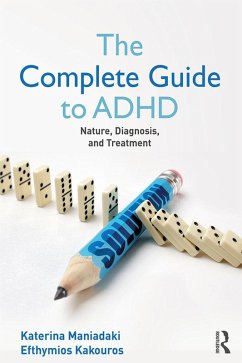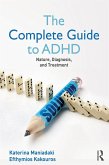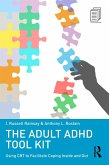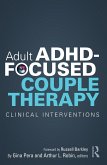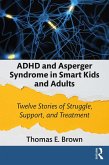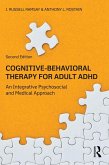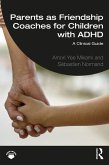Dieser Download kann aus rechtlichen Gründen nur mit Rechnungsadresse in A, B, BG, CY, CZ, D, DK, EW, E, FIN, F, GR, HR, H, IRL, I, LT, L, LR, M, NL, PL, P, R, S, SLO, SK ausgeliefert werden.
Russell A. Barkley, Ph.D., Clinical Professor of Psychiatry , Virginia Treatment Center for Children and Virginia Commonwealth University Medical Center, Richmond, VA
The Complete Guide to ADHD: Nature, Diagnosis, and Treatment is a state-of-the-art comprehensive resource for clinicians, researchers, and mental health trainees working with individuals with ADHD throughout the lifespan. Maniadaki and Kakouros have nicely weaved their considerable clinical expertise with cutting edge empirical research to provide readers with critical background information on ADHD as well as clear, concise recommendations for assessment and treatment of this disorder from a developmental perspective. Their multilevel approach to assessment and intervention offers a unique, systems-based context to providing services for the ADHD population. This book is an important resource that is a must-read for all professionals working with children, adolescents, and adults with ADHD.
George J. DuPaul, PhD, Professor of School Psychology, Lehigh University (Bethlehem PA USA)
The Complete Guide to ADHD: Nature, Diagnosis, and Treatment is a crowning achievement that comprehensively reviews the history, course, diagnosis, and treatment of ADHD. It includes practical evidence-based approaches as well as clinically-rich case examples across the developmental spectrum. The book is a great resource for practitioners and students alike.
Gregory A. Fabiano, Ph.D., Professor of Counseling, School, and Educational Psychology, University at Buffalo
Katerina Maniadaki and Efthymios Kakouros provide a masterly integration of historic, neuroscientific, neurodevelopmental, and clinical perspectives of ADHD. The inclusion of case studies highlights its complexity and broad array of functional impairments. Their insightful and highly readable interpretation of current advances in ADHD, together with their comprehensive, multi-level systemic approach to assessment, diagnosis, and intervention, makes this book an essential resource for clinicians, researchers, educators and other professionals who wish to better understand, help and support, individuals with ADHD.
Rosemary Tannock, Phd, Senior Scientist, Neurosciences & Mental Health Program of the Research Institute, The Hospital for Sick Children & Professor Emerita, University of Toronto (Special Education, Psychiatry), Canada
The Complete Guide to ADHD: Nature, Diagnosis, and Treatment is an excellent addition to the field that skillfully blends together its comprehensive coverage of ADHD theory, research, and practice within a developmental framework. Particularly helpful are the numerous case examples and clinical insights that appear throughout the text, bringing to life how ADHD and its associated features unfold across the life span and deviate from typical development.
Arthur D. Anastopoulos, Ph.D, Professor of Human Development and Family Studies, University of North Carolina at Greensboro
The Complete Guide to ADHD: Nature, Diagnosis and Treatment is an exemplary professional guidebook and must-read for students, educators, and clinicians. Clearly the product of seasoned clinicians and scholars, this remarkable book distills the voluminous research on ADHD into a highly accessible and usable form. Their multilevel approach to clinical care across the lifespan is an invaluable resource for all professionals helping those affected by ADHD.
Linda Pfiffner, PhD, Professor, Department of Psychiatry, University of California, San Francisco

